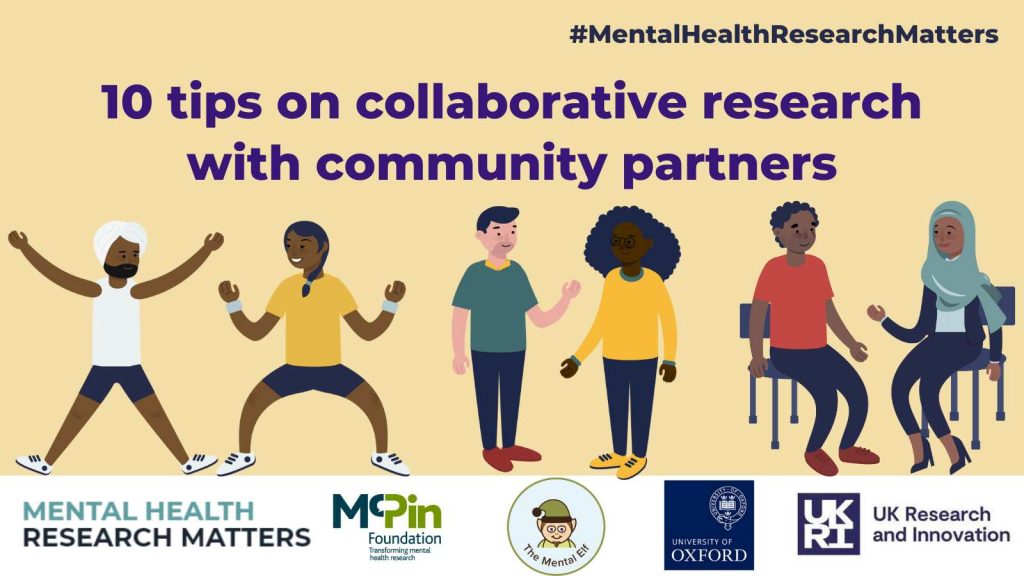
For this blog, Dr Jess Bone spoke with researchers Rosie Dow, Dr Alex Burton, and Dr Karen Mak from the MARCH Network to get their top tips on collaborative research with community partners. If you’re a mental health researcher looking to make the most of community partnerships, then you won’t want to miss this.
The MARCH Network (2018-2021) explored how social, cultural, and community assets – the arts, culture, heritage sites, libraries, green spaces, and more – enhance mental health and wellbeing. The Network was led by the Social Biobehavioural Research Group at UCL, now a designated World Health Organisation Collaborating Centre for Arts & Health.
The UKRI-funded MARCH Network set out to transform our understanding of how social, cultural, and community assets enhance public mental health and wellbeing, help prevent mental illness, and support those living with mental health conditions.
Over three years, MARCH brought together nearly 2,000 researchers, community organisations, policymakers, and individuals with lived experience of mental illness, who co-created a series of research projects. MARCH worked to support the future of research on community engagement and mental health; what better place to get tips for mental health researchers wanting to maximise the impact of community partnerships?
1. Start engaging early
Take time to build a relationship and listen to your community partners. Get to know how they work, their timescales and sign-off processes, and what they need from you. Don’t leave this until late in your research; the earlier you start, the more you and your partners can benefit.
2. Make organisations research partners
What do your community partners want to learn and why? How will this research help them and their people? Create a shared language by setting goals that everyone can refer to. Determine whether you are coproducing research, they are a consultant on your research, or you are a consultant evaluating their existing work or resources. And remember to clarify what you both mean by each term.
3. Avoid assumptions
Don’t go with a fully-formed research protocol and research questions. If possible, let your community partners co-create these, informed by their goals and mission.
4. Be open to different ways of working
Community organisations are likely to already have programmes or interventions up and running. You might need to work backwards from these existing resources rather than develop a new intervention based on theory. This may be different to your usual way of working. It can be useful to ask people to complete a checklist identifying the active ingredients of their intervention or programme, such as this worksheet for arts for health activities, to see what’s working.
5. Approach as equals
The traditional boundaries between researcher, practitioner, service-user, and funder are becoming more and more blurred. This is a good thing, as it helps to equalise what traditionally have been hierarchical structures where some partners held more power and influence than others. Having said that, there still needs to be clear leadership within projects. Defining roles and responsibilities will help with this, as could exploring opportunities for co-leadership or co-chairing meetings.
6. Be aware of the influence of your research
Research and evaluation are very important to community organisations, and they will value your skills and input. If your research helps them to show that their organisation provides positive outcomes for people, that information will also be valuable. It’s good to be aware of this so that you appreciate the dynamic of the relationship and can manage expectations. Equally, your research may not find evidence for any differences in outcomes. This is also useful information as it can be used to inform change, but you may need to manage this message too.
7. Share what you know
Research is very technical, and the language and methods researchers use can feel very distanced from the world of community organisations. Be transparent. Work hard to make your language and methods understood by your partners. You can see this as an opportunity to help them develop their knowledge as well as a chance to enhance your communication skills.
8. Be honest
Studies have shown that people like engaging in research, as long as they understand what this entails for them. You need to be very clear about your own needs, timescales, and commitments.
9. Communicate
Find different ways to communicate. Your partners may not have time to read long and technical documents. Be ready to talk through what you’re doing and explain it differently.
10. Don’t avoid the difficult conversations
Be upfront about costs. Discuss the funding and resources needed on both sides so that you can plan logistics and costings. You’ll need to be clear about what’s expected of everyone involved to do this.
Dr Jess Bone is a Research Fellow in Statistics/Epidemiology in the Social Biobehavioural Research Group at UCL. She was previously involved in the MARCH Network and is part of the Arts Health Early Career Researcher Network team.
Rosie Dow is Programmes and Engagement Manager in the Social Biobehavioural Research Group at UCL. She has also been a Programme Manager at Nesta, a Director at Breathe Arts Health Research, and led Tenovus Cancer Care’s Sing with Us choir programme for people affected by cancer.
Dr Alex Burton is a Senior Research Fellow in the Social Biobehavioural Research Group at UCL and was involved in the MARCH Network. She is currently working with The Old Vic Theatre and Breathe Arts Health Research and has previously worked with community organisations on the UCL COVID-19 Social Study.
Dr Karen Mak is a Research Fellow in Quantitative Social Science in the Social Biobehavioural Research Group at UCL and was involved in the MARCH Network. She is currently working with community organisations including Historic England, Artswork, The Mighty Creatives, Arts Connect, and The Reading Agency.